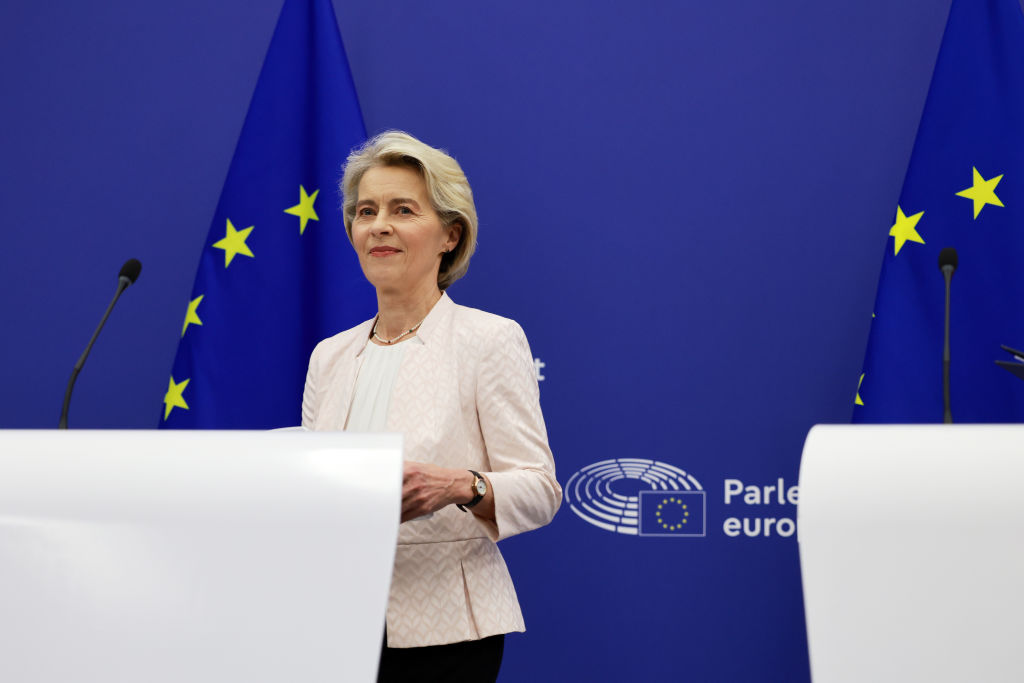What Ursula von der Leyen’s Re-election Means for Europe and Tech

Ursula von der Leyen has been re-elected as the president of the European Union for another five years. The vote on Thursday saw her secure 401 votes in favor and 284 against, a stronger endorsement compared to her initial election.
The geopolitical climate likely influenced the vote, with ongoing crises such as the war in Ukraine and the upcoming U.S. election, where the return of Donald Trump is a possibility. Von der Leyen’s ability to stay calm under pressure has earned her respect among European lawmakers. Her re-election promises to continue substantial reforms, particularly in digital policy and tech regulations.
Ursula von der Leyen’s Re-election
On Thursday, Ursula von der Leyen was re-elected as the European Union’s president for another five years. With 401 votes in favor and 284 against, her support was far stronger than during her first election. However, it’s believed that many lawmakers’ votes were influenced by current geopolitical uncertainties. Ongoing crises like the war in Ukraine and the upcoming U.S. election may have played a role.
Von der Leyen has shown remarkable calmness in times of crisis. This trait earned her respect among European lawmakers. Her second term will continue her work in digital policy reforms, aiming to deepen and expand previous efforts. This includes enforcing major regulations like the Digital Markets Act (DMA) and the Digital Services Act (DSA), which target exploitative practices by big tech companies.
Major Digital Reforms
During her first term, von der Leyen was at the forefront of significant changes in tech policy. The Digital Markets Act and the Digital Services Act were among the key reforms. These regulations are designed to break down monopolistic practices and ensure fair competition. They can force big tech companies to change their platform operations.
Von der Leyen also pushed for more data access for various sectors. Her focus on risk-based regulation for AI was initially seen as premature by some, but she was vindicated as concerns over AI misuse grew. The upcoming term aims to intensify the enforcement of these rules, particularly in the e-commerce sector.
Enforcing the EU’s Digital Rulebook
The enforcement of the EU’s digital rulebook is expected to get stricter. This is especially true for e-commerce platforms like AliExpress, Amazon, Booking, Google Shopping, Meta Marketplace, Shein, Temu, and Zalando. New policies could also be on the horizon, such as tighter rules around social media usage by children and young people.
Von der Leyen plans to launch an EU-wide inquiry on social media’s broader impacts on well-being. She is also serious about tackling unethical online design techniques like infinite scroll and auto-play. A new action plan against cyberbullying is in the works, demonstrating her commitment to safer online environments.
Protecting Democracy and Addressing Disinformation
Von der Leyen’s second term will also focus on protecting democracy. This involves tackling the ongoing challenge of online disinformation. Enhanced enforcement of the DSA mandates larger platforms to identify and mitigate systemic risks in this area.
Her policy manifesto also targets deepfakes, stating that the Commission will ensure transparency requirements are met. These measures are part of a broader strategy to strengthen the EU’s approach to AI-produced content that can mislead people. The precise details of how this will be achieved are yet to be seen.
Boosting AI and Competitiveness
Increasing Europe’s competitiveness, especially in AI, is a key focus. Initiatives like reconfiguring the network of supercomputers for AI model training are already underway. Additional support for AI startups and research is planned through a new European AI Research Council.
Von der Leyen emphasizes the importance of data access to foster competitiveness and innovation. Her manifesto calls for a ‘data revolution’ and the development of a European Data Union Strategy. This aims to simplify data sharing by establishing a clear legal framework while maintaining high standards of privacy and security.
New Approaches to Competition Policy
Von der Leyen also aims to refine competition policies to promote innovation and competitiveness. This includes better support for startups, especially those at risk of ‘killer acquisitions’ by larger firms. More progress is needed in streamlining the EU’s single-market concept, which still poses challenges for online services.
A new proposal aims to create an EU-wide legal status to help innovative companies grow. This would offer a simpler, harmonized set of rules across the EU, effectively serving as a regulatory sandbox. Biotech startups could also benefit from the new European Biotech Act, set to be proposed in 2025.
Promoting Business Growth
A significant focus will be on cutting red tape to promote business growth. The next Commission plans to propose a new EU-wide legal status, which will simplify rules in certain areas. This could take the form of a ’28th regime’ to benefit startups and innovative companies.
These efforts aim to balance promoting innovation with maintaining high standards of privacy and security. It’s a challenging but essential task to ensure Europe remains competitive while safeguarding its values.
Von der Leyen’s re-election heralds continued efforts in bolstering digital policy and tech regulations in the EU. Her strong endorsement highlights confidence in her leadership during geopolitical turbulence. The upcoming term promises intensified enforcement of existing laws and new initiatives to secure a safer digital environment. European competitiveness, particularly in AI, is set to receive significant attention, reflecting a desire to remain at the forefront of technological advancements. Her vision balances promotion of innovation and maintaining high standards of privacy and security.





